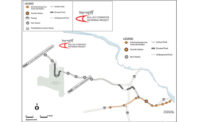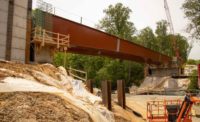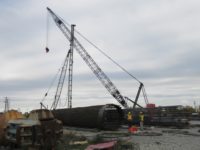Report: Quality Management Problems Could Further Delay Virginia Rail Project
The problem-plagued second phase of the $2.8-billion Silver Line rail project in Northern Virginia has come under fire from the agency that will own and operate the transit line upon its completion.
An interim report issued March 5 by the Washington Metropolitan Area Transit Authority (WMATA) Inspector General criticized the project’s funding and oversight agency, the Metropolitan Washington Airports Authority (MWAA), and its design-build contractors for a flawed quality management program that failed to fully investigate core causes of ongoing problems such as malfunctioning surge arrestors and failures in safety-critical portions of track.
The report also faulted MWAA, which operates the area’s two major airports, for not having a “single design-build systems integrator who views the core systems and infrastructure holistically,” resulting in many problems remaining unresolved months after they were originally identified.
The majority of the 11.5-mile project, which extends the existing Silver Line to Washington Dulles International Airport, is being built by a joint venture of Clark Construction Group and Kiewit Infrastructure Group.
In addition to construction-related issues, the report cites repeated software validation problems that have delayed testing of the automatic train-control system.
Keith Couch, the joint venture’s project director, says the team is reviewing the report, but remains “proud of the quality work we’ve delivered on the Silver Line project.”
Hensel Phelps, contracted to build the project’s new rail yard, was faulted in the report for unresolved ballast issues, including excessive amounts of non-conforming track bed materials that could cause the tracks to shift.
The report advised against acceptance of the rail yard until recommended remediation issues are implemented. Hensel Phelps project officials insist they have been responsive to WMATA’s concerns
The Silver Line project has also been plagued by concrete issues, including more than 20 cracked precast panels at the project’s six stations and rail yard.
WMATA’s Inspector General has commissioned an independent contractor to inspect each panel for signs of corrosion and provide recommendations for future assessments, maintenance and remediation.
WMATA has insisted that quality and safety concerns must be addressed to the agency’s satisfaction before accepting the project and beginning passenger service, a milestone the already delayed project could see slip to 2021.



